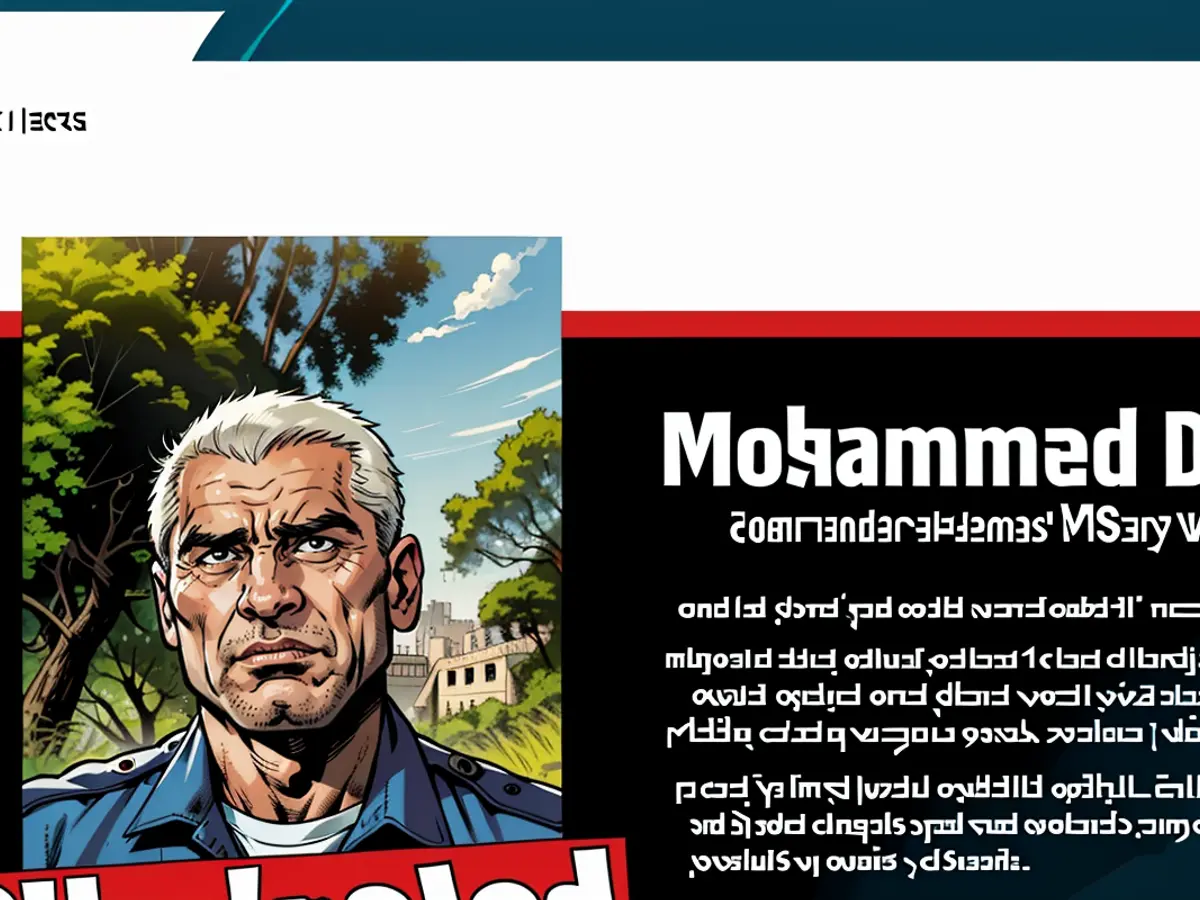- Israel declares dead influential Hamas military leader
About two weeks after a massive air strike in the Gaza Strip, Israel officially declared the military chief of the Islamic terrorist organization Hamas, Mohammed Deif, dead. Based on intelligence information, the army confirmed Deif's death in a statement.
Deif was one of the main masterminds behind the terrorist attack on Israel on October 7. He was the chief of the Kassam Brigades and the deputy of the Hamas leader in Gaza, Yahya Sinwar. Hamas has not yet confirmed Deif's death.
Known as the "Ghost," Deif had survived numerous Israeli assassination attempts over the years. In a 2014 air strike on a house in the Gaza Strip, his wife and young son were killed. Deif managed to escape.
The army's statement comes a day after the killing of Hamas' external chief, Ismail Haniyeh, in Tehran. Iran and Hamas blame Israel for the attack. Israel has not commented on the accusation and merely stated that anyone who attacks the country will pay a heavy price.
Thousands attend Haniyeh's funeral in Tehran
Thousands of people attended a state-organized funeral for Haniyeh in the Iranian capital, Tehran. Present were the entire political elite of Iran, including Supreme Leader Ayatollah Khamenei and new President Massoud Pesseschkian.
The news of Haniyeh's death came just hours after an Israeli air strike on a suburb of the Lebanese capital, Beirut, where Fuad Shukr, a high-ranking Hezbollah commander, was killed, according to the Israeli army. Israel retaliated for the death of 12 children and teenagers in a Druze village on the Golan Heights, which it blamed on Shukr. Hezbollah, however, claimed it had nothing to do with the attack.
Israel on high alert after threats
In anticipation of possible revenge attacks by Iran and its allies, the Israeli army has been put on high alert. The Israeli Broadcasting Corporation reported that the country's air defense is on maximum alert. Fighter jets are patrolling the country's airspace, and ground troops at the borders have increased their combat readiness.
Israeli military says it killed Hamas' military chief
The army said in a statement that fighter jets carried out a "precise, targeted strike" on July 13 against a facility where Mohammed Deif and the commander of the Hamas' Khan Yunis Brigade, Rafa Salama, were located. The attack killed 90 people and injured 300, according to the health ministry controlled by Hamas.
Israel had set a goal of capturing or killing Hamas leader Sinwar and his deputy Deif during its war in the Gaza Strip. In March, the army confirmed the killing of the third-highest Hamas official in the Gaza Strip, Marwan Issa, in an air strike. In January, the second-highest Hamas official abroad, Saleh al-Aruri, was killed in an explosion in Beirut. Hezbollah blamed Israel for Aruri's death.
"This is a significant milestone in the process of dismantling Hamas as a military and governing authority in the Gaza Strip and achieving the goals of this war," Defense Minister Joav Galant wrote on the online platform X about Deif's death. Israel will continue to pursue Hamas terrorists, he reiterated. "We will not rest until this mission is accomplished."
Deif and Sinwar are considered the main masterminds behind the massacre in Israel on October 7 last year. Around 1,200 Israelis were killed and around 250 people were abducted to Gaza. The terrorist attack triggered the war. In light of the high number of civilian casualties and the catastrophic humanitarian situation in the Gaza Strip, Israel is increasingly criticized internationally.
According to Israeli political science professor Jonathan Rynhold, Israel has nearly achieved its military objectives in the intense phase of the war. "Hamas is practically broken as a conventional military force and cannot receive new weapons supplies," he said. The killing of its leaders serves as a deterrent.
The strategy of the Hamas leadership, according to Rynhold, was to "accept heavy civilian losses as a means to generate international pressure on Israel to stop the war and simultaneously damage Israel's reputation and legitimacy." He expects the war to continue for now, "but at a significantly lower intensity." The main goal, the release of the hostages, has not been achieved yet.
Hostages held for 300 days
Israeli President Izchak Herzog called on heads of state and government worldwide to "work for the release of the hostages who have been held captive for 300 days." Herzog said, "Every second of every minute of every hour of these 300 days is a crime against humanity."
Observers see little chance of a breakthrough in the indirect negotiations for the release of the hostages after Haniyeh's death. These negotiations had already stalled after Israeli Prime Minister Benjamin Netanjahu reportedly hardened his positions. According to Israeli estimates, Hamas still holds 115 hostages, but many may no longer be alive.
Despite the army's announcement, Hamas has yet to officially confirm the death of Mohammed Deif, the military chief of the organization. Deif, known as the "Ghost," had a history of surviving Israeli assassination attempts, including the loss of his wife and son in a 2014 air strike.








